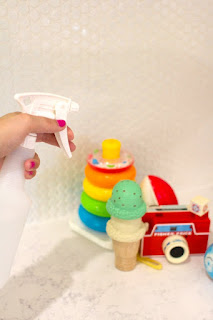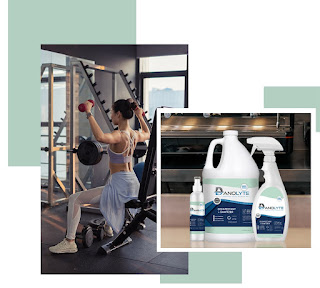How to Find the Best Disinfectant for Coronavirus?
With this outbreak of COVID-19, frequently cleaning and disinfecting your home is essential for keeping yourself and your family safe and healthy.
While person-to-person transmission of COVID-19 poses a way greater risk than transmission via surfaces, It’s necessary to note that cleaning a surface – simply eliminating dirt and particles – is not the identical thing as disinfecting it to kill viruses and bacteria.
There are many products you'll use to clean hard surfaces, like soapy water and vinegar. And while cleaning high-traffic surfaces to induce eliminate contaminants, dust and debris may well be a necessary step of cleaning your home, you still must disinfect those surfaces from the novel coronavirus by using disinfectant for Covid 19
First, clean the surfaces, removing any contaminants, dust, or debris. you'll do that by wiping them with soapy water (or a cleaning spray) and a towel.
Then apply a surface-appropriate disinfectant for Coronavirus. The quickest and easiest way to do and try this is common with disinfecting wipes or disinfectant spray.
Using the proper varieties of disinfectants for Covid 19 regularly on surfaces throughout your facility is critical in helping prevent the spread of diseases and sicknesses like colds, Influenza, and even COVID-19.
The best choice for disinfectants for coronavirus in hospital and institutional settings due to their low cost and quick action upon an oversized range of microorganisms. Kill an array of organisms including resistant viruses, and are highly recommended for cleaning bodily fluids.
Chlorine-based disinfectants for Coronavirus are inexpensive and have relatively quick kill times, however, they'll be corrosive and cause discoloration similarly to irritation if not used as directed. Chlorine Sanitizer II is an example of a chlorine disinfectant for Covid 19, ideal to be utilized in healthcare settings and food preparation processing.
When mixed in water, alcohols are active against an honest extent of bacteria, though higher strengths are often necessitated to disinfect wet surfaces. The downsides are they evaporate quickly, they’re flammable, which they could not have organic soil tolerance claims, meaning they'll not be effective when organic matter (blood, for example) is present.
Alcohol is very powerful against the bacteria that cause Tuberculosis, yet they require a high part per million (ppm) ratio to be sufficient for disinfection. Some bacteria have grown a resistance to aldehydes, and are found to cause asthma and other health problems. they're going to also leave a greasy residue and must be in an alkaline solution.
Iodophors can be used for disinfecting some semi-critical medical equipment but they'll stain surfaces and have an unpleasant odour (think Iodine). Iodophors aren’t often employed in facility maintenance anymore.
Phenolic Compounds are Effective against pathogenic bacteria including mycobacterium likewise to fungi and viruses, but also very toxic and corrosive, attacking surfaces while they attack the organisms on them. Some areas enforce disposal restrictions on Phenols.
When drafted as ready-to-use disinfectants for Covid 19, hydrogen peroxide-based products are viewed as being “greener” and more sustainable for the environment. this can be actually because they break down into the naturally occurring elements of hydrogen and oxygen. They're mildly acidic and are effective cleaners. At high concentrations (of hydrogen peroxide) they'll become unstable and dangerous.
What to Consider When Choosing Your Disinfectant for coronavirus
There are four primary considerations you need to evaluate when choosing a disinfectant for covid 19 to best meet the necessities of your facility.
1. Effectiveness
2. Kill Time
3. Safety
4. easy Use



Thanks for your blog post, I am from Philippines and I want the best disinfectants for wastewater management, which one should I use?
ReplyDelete